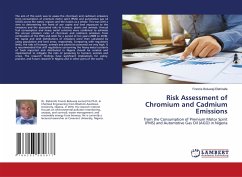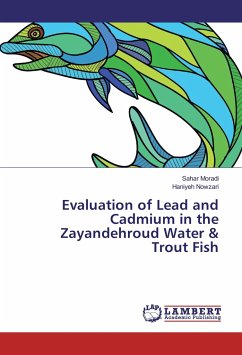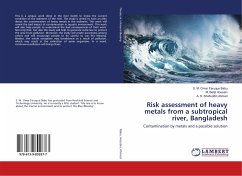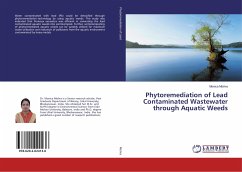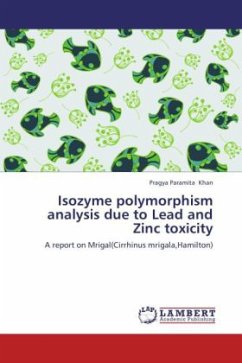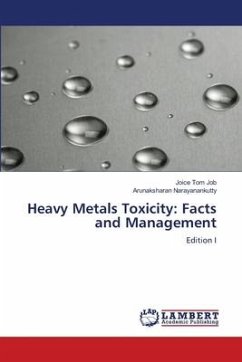
Heavy Metals Toxicity: Facts and Management
Edition I
Versandkostenfrei!
Versandfertig in 6-10 Tagen
29,99 €
inkl. MwSt.

PAYBACK Punkte
15 °P sammeln!
Heavy metal toxicity refers to the harmful effects of exposure to high levels of certain heavy metals, such as lead, mercury, arsenic, and cadmium. These metals are toxic to humans because they can accumulate in the body over time and disrupt normal cellular function. The sources of heavy metal exposure can be environmental, such as contaminated air, water, or soil, or occupational, such as in industries involving metal processing, mining, and battery manufacturing. Heavy metal toxicity can cause various symptoms, ranging from mild to severe, depending on the type and duration of exposure. Sym...
Heavy metal toxicity refers to the harmful effects of exposure to high levels of certain heavy metals, such as lead, mercury, arsenic, and cadmium. These metals are toxic to humans because they can accumulate in the body over time and disrupt normal cellular function. The sources of heavy metal exposure can be environmental, such as contaminated air, water, or soil, or occupational, such as in industries involving metal processing, mining, and battery manufacturing. Heavy metal toxicity can cause various symptoms, ranging from mild to severe, depending on the type and duration of exposure. Symptoms may include headache, fatigue, abdominal pain, anemia, kidney damage, and neurological disorders. Treatment for heavy metal toxicity involves removing the source of exposure and chelation therapy, which consists of the use of chemicals to bind and remove the toxic metals from the body. Prevention measures include avoiding exposure to contaminated environments, wearing protective gear in hazardous work environments, and regularly monitoring heavy metal levels in the body. Overall, heavy metal toxicity is a serious health concern that can have long-term effects.




